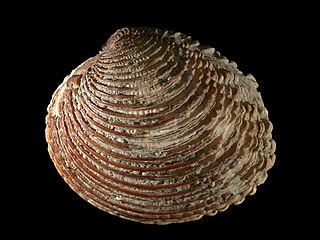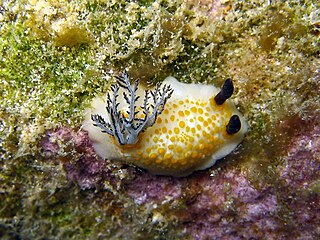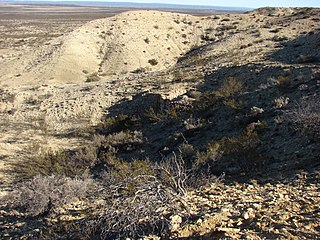
The Veneridae or venerids, common name: Venus clams, are a very large family of minute to large, saltwater clams, marine bivalve molluscs. Over 500 living species of venerid bivalves are known, most of which are edible, and many of which are exploited as food sources.

Volutidae, common name volutes, are a taxonomic family of predatory sea snails that range in size from 9 mm to over 500 mm. They are marine gastropod mollusks. Most of the species have no operculum.

Megalobulimus is a genus of air-breathing land snail, a terrestrial gastropod mollusk in the subfamily Megalobuliminae within the family Strophocheilidae.

Penion is a genus of large marine snails, commonly known as siphon whelks, classified within the mollusc family Austrosiphonidae.

Voluta is a genus of medium to large sea snails, marine gastropod molluscs in the family Volutidae, the volutes.

Voluta ebraea, common name the Hebrew volute, is a species of medium-sized sea snail, a marine gastropod mollusk in the family Volutidae, the volutes. The Hebrew volute is endemic to Brazil, where it is collected both for food and for its shell, which is highly desired for ornamental purposes. Recent studies indicate that natural populations of Voluta ebraea may be suffering declines due to overfishing and overexploitation.

Taringa is a genus of sea slugs, dorid nudibranchs, shell-less marine gastropod mollusks in the family Discodorididae.
Pachycymbiola scoresbyanum is a species of sea snail, a marine gastropod mollusk in the family Volutidae, the volutes.

Adelomelon is a genus of sea snails, marine gastropod mollusks in the family Volutidae.

Exilia is a genus of sea snails in the family Ptychatractidae.

Macron is a genus of sea snails, marine gastropod mollusks unassigned in the superfamily Buccinoidea.

Cabestana felipponei is a species of predatory sea snail, a marine gastropod mollusk in the family Cymatiidae.

Potamolithus is a genus of small freshwater snails that have an operculum, aquatic gastropod mollusks in the family Tateidae.

Calliostoma consimile is a species of sea snail, a marine gastropod mollusk in the family Calliostomatidae.

Calliostoma jucundum is a species of sea snail, a marine gastropod mollusk in the family Calliostomatidae.

The Roca Formation is a Cretaceous to Paleogene lithostratigraphic unit, located in the Neuquén Basin. It crops out in the Argentinian provinces of Río Negro, Neuquén, La Pampa, and Mendoza. Its deposition is diachronous, beginning during the Maastrichtian in the north of its distribution, and later moving to the south, where its strata reached the Late Danian. It lies transitionally above the Jagüel Formation, and the top of the formation is marked by a regional unconformity due to an Eocene and Oligocene orogenic pulse. These two units belong to the Malargüe Group. The marine sediments of the Jagüel and Roca Formations were deposited during a transgression from the Atlantic Ocean, beginning in the Maastrichtian and ending in the Danian.

Urosalpinx ortmanni is an extinct species of sea snail, a marine gastropod mollusk in the family Muricidae, the murex snails or rock snails.














